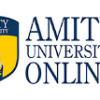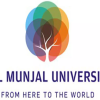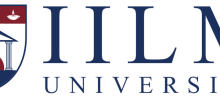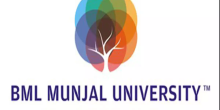Difference Between MBA and PGDM : A Detailed Comparison
Introduction When it comes to pursuing higher education in management, MBA (Master of Business Administration) and PGDM (Post Graduate Diploma in Management) are the two most popular options available to students. Both of these programs focus on building leadership and managerial skills, but they differ in several significant ways, such as their curriculum, duration, recognition, and placement opportunities. Choosing between an MBA and PGDM can be a difficult decision, as it involves understanding the nuances of both programs. In this article, we will explore the key differences between MBA and PGDM and provide a comprehensive comparison to help you make an informed decision based on your goals and preferences. 1. Definition MBA (Master of Business Administration) An MBA is a graduate-level degree awarded by universities and academic institutions. It is designed to provide students with a thorough understanding of business management principles, focusing on theory, leadership, and strategic management. PGDM (Post Graduate Diploma in Management) On the other hand, PGDM is a diploma program offered by autonomous business schools and institutions. Unlike the MBA, it is not a degree conferred by universities but a professional diploma awarded by institutes authorized by regulatory bodies like AICTE (All India Council for Technical Education). PGDM programs are known for their industry relevance and focus on practical knowledge. 2. Accreditation MBA: ● MBA programs are accredited by universities and are recognized by the University Grants Commission (UGC) in India.● MBA degrees are recognized globally, especially in academia, and areconsidered a prestigious qualification in the business world. PGDM: ● PGDM programs, although not university degrees, are accredited by AICTE (All India Council for Technical Education).● They are often recognized by international organizations like AMBA, AACSB, and EFMD, making them a strong contender in the corporate world. +91-9818607699 info@eduneteducare.com 3. Duration MBA: ● The duration of an MBA program is typically 2 years for a full-time course, with students required to complete coursework over four semesters.● Some universities may offer part-time MBA programs or distance learning options, which may take longer. PGDM: ● PGDM programs usually range from 1 to 2 years, depending on the course structure.● Executive PGDM programs are designed for working professionals and are generally completed in 1 year. 4. Curriculum MBA: ● The MBA curriculum is more theoretical in nature. It focuses on building a solid foundation in business fundamentals such as finance, marketing, human resources, and operations.● MBA programs are often structured to provide students with a comprehensive understanding of business practices through case studies, lectures, and research. PGDM: ● The PGDM curriculum is more industry-oriented, focusing on the practical application of management concepts.● PGDM courses often feature real-world case studies, industry internships, live projects, and guest lectures by industry professionals, making it more aligned with current market trends. +91-9818607699 info@eduneteducare.com 5. Admission Process MBA: ● Admissions to MBA programs are typically based on entrance exams like CAT (Common Admission Test), XAT, GMAT, MAT, or university-specific exams.● Additionally, top universities may also require a group discussion (GD) or personal interview (PI) for selection. PGDM: ● PGDM programs also have an entrance exam-based admission process. Common entrance exams include CAT, XAT, GMAT, and CMAT.● Some business schools offering PGDM may also conduct GD/PI rounds as part of the selection process. 6. Recognition MBA: ● MBA is a globally recognized academic degree that is awarded by universities.● It is highly valued by multinational companies, academic institutions, and government organizations worldwide. PGDM: ● PGDM, while widely recognized in the Indian corporate world, may not be universally accepted as a degree in some countries.● However, PGDM is recognized by international accreditation bodies like AMBA, AACSB, and EFMD, which enhances its value, particularly in the corporate sector. +91-9818607699 info@eduneteducare.com 7. Faculty MBA: ● MBA programs are generally taught by university professors, many of whom have strong academic backgrounds, including PhDs in business or management.● These professors focus on delivering theoretical knowledge and research-based learning. PGDM: ● PGDM programs are typically taught by industry professionals and practitioners who bring real-world experience and case-based knowledge to the classroom.● The focus is on providing students with practical skills and exposure to current business trends. 8. Placement Opportunities MBA: ● MBA placements largely depend on the reputation of the university. Top universities often have strong industry connections, providing students with excellent placement opportunities.● However, in general, MBA programs may not provide as direct a link to industry internships and jobs as PGDM programs. PGDM: ● PGDM programs typically have a much stronger focus on industry partnerships and placements. Business schools offering PGDM have robust placement cells and strong corporate ties, which lead to better job placements.● PGDM students often receive opportunities to work with top companies in sectors like consulting, finance, marketing, and technology. 9. Industry Exposure MBA: ● Industry exposure in MBA programs is generally limited to internships and academic projects, which may not always involve direct interaction with the corporate world.● Students may need to seek industry experience on their own or through optional internships during breaks. PGDM: ● PGDM programs offer extensive industry exposure. Through internships, live projects, and collaborations with corporate giants, students gain hands-on experience in the field.● Business schools offering PGDM often have an extensive network of companies that participate in campus placements and offer training programs. 10. Cost MBA: ● The cost of MBA programs can vary significantly based on the university. Public universities tend to have more affordable fees, while top private institutions charge higher tuition fees.● Generally, MBA programs are considered to be more cost-effective compared to PGDM programs, especially in public universities. PGDM: ● PGDM programs tend to be more expensive, particularly in top-tier business schools.● The fees for PGDM are often higher than MBA programs due to the industry-oriented curriculum, guest lectures, and internship opportunities that come with the program. +91-9818607699 info@eduneteducare.com 11. Flexibility MBA: ● MBA programs tend to have a standardized curriculum and are less flexible in terms of electives and specializations.● Students may have limited options for customizing their courses based on career goals. PGDM:


































